Pagliacci, Scottish Opera review - roll up, roll up for opera like never before!
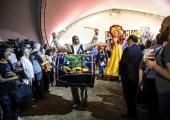

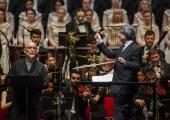
Everything is political in the world's current turbulent freefall. The aim of Riccardo Muti's "Roads of Friendship" series, taking the young players of his Luigi Cherubini Youth Orchestra to cities from Sarajevo in 1997 to Moscow in 2000 and Tehran last year, has simply been "to perform with musicians from different cultures and religions" in a community of peace.
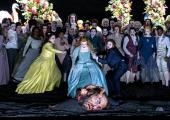
It's swings and roundabouts for Glyndebourne this season. After the worst of one director currently in fashion, Stefan Herheim, in the unhappy mésalliance of the house's Pelléas et Mélisande, only musically gripping, comes the already-known best of another, Barrie Kosky. His Royal Opera Carmen and The Nose were half brilliant, half misfire; Handel's cornucopia of invention, never richer, in the very operatic oratorio Saul brings out a hallucinatory vision from Kosky that works from start to finish.
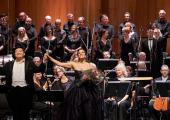
Two rules should help the non-Donizettian: avoid all stagings of the prolific Bergamasco's nearly 70 operas other than the comedies; and seek the guarantee of top bel canto stylists. Conductor Mark Elder and soprano Joyce El-Khoury certainly fit that bill, and a straight concert performance of L'Ange de Nisida, given at the Royal Opera in association with Opera Rara, got it exactly right.

"When the new god approaches, we surrender, struck dumb". Especially if, for the singer of those words, popular entertainer Zerbinetta, the “new god” takes the shape of same-sex love.
What a fabulous score Pelléas et Mélisande is, and what a joy to be able to hear it in a concert performance without the distraction of some over-sophisticated director’s self-communings. Well, if only.
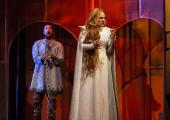
Valiant Opera Holland Park, always taking up the gauntlet for Italian operas which should mostly never be staged again. Worst was Zandonai's Francesca da Rimini, where musical ambition vastly outruns technique and inspiration. Mascagni's Iris with its hideous misogyny has now been followed by the same composer's Isabeau of 1911, turgid of libretto and dramaturgy.

Much as I love Strauss’s Ariadne in its final form, I have a sneaking nostalgia for the original version (attached to Hofmannsthal’s adaptation of Molière’s Le bourgeois gentilhomme), which had Zerbinetta and her companions popping up after the final love duet and gently letting out some of its gas.
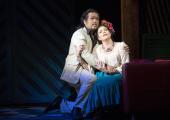
Alzira is Verdi’s shortest opera and his least performed, and you have to ask why.
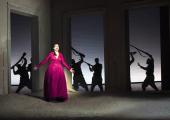
The audience at the Buxton International Festival has a way of cutting to the essence of a production.